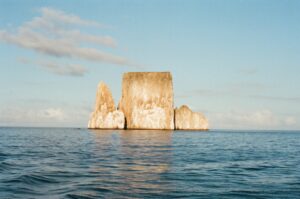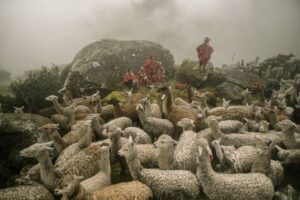It is with a heavy heart that I again sit down to write about Marco Temporal and the laws surrounding the demarcation of Indigenous Territories in Brazil, particularly PL 2903.
We first published a story in July, chronicling Marco Temporal’s long history in Brazil’s political and legislative systems. In October, we returned to the topic after the Supreme Court’s decision on Marco Temporal in September, which was swiftly followed by the Senate’s approval of PL 2903. President Luiz Inácio Lula da Silva then exercised presidential veto powers on 47 provisions of PL 2903 that removed protections of Indigenous Territories, allowed the revocation of Territories already demarcated, and made the demarcation of new Territories near impossible.
Two weeks ago, on December 14, the Federal Congress of Brazil, led by the ruralist caucus representing agribusiness and mining interests, voted to reject the President’s veto, bringing into law 41 of the previously disapproved provisions of PL 2903, including those focused on Marco Temporal. An absolute majority is required to reject a presidential veto, and this was achieved with Congress voting 321 in favour and 137 against, which was followed by a vote in the Senate with 53 in favour and 19 against.

The new law — known as 14.701/2023 — contains several measures that have been labelled “anti-Indigenous” and that NGO Survival International stated are “the most serious and vicious attack on Indigenous rights in decades”. These include permitting non-Indigenous occupants of Indigenous Territories — including illegal loggers and miners — to remain there until the territory is demarcated; enabling a loophole that allows mining, the installation of military equipment, and construction of roads on Indigenous Territories without prior consultation of the Indigenous population or the National Foundation for Indigenous Peoples (FUNAI); and the immediate nullification of Indigenous Territories that currently do not comply with the new laws.
In an article published on December 15, the Articulation of Indigenous Peoples of Brazil (APIB) stated the new law is “legislated genocide” and that they will file a Direct Action of Unconstitutionality (ADI) with the Supreme Federal Court of Brazil to request the annulment of law 14.701/2023. Dinamam Tuxá, the Executive Coordinator of APIB, explained that until the ADI is ruled upon by Supreme Court Justices, the Indigenous Peoples of Brazil will remain in a vulnerable position. Congresswoman Célia Xakriabá stated in Congress that “the overturning of these vetoes, which are so crucial, is not only a defeat for Brazil but for all of humanity.”
We agree, which is why we continue to follow this story. It is crucial to the future of our world that we continue to put pressure on the people who hold power within the political and legislative systems of Brazil to protect the Amazon rain forest, as well as all of the nation’s precious ecosystems.
Anton Rivette is a writer and photographer. He leads storytelling at eco-nnect.













